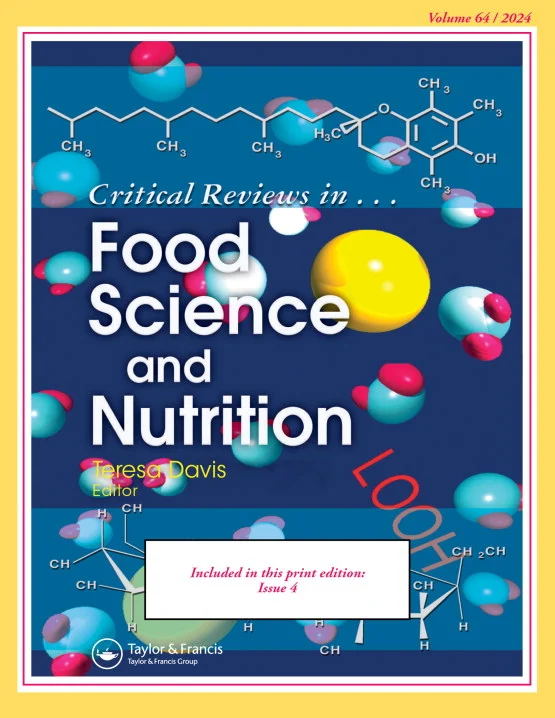人类肠道微生物群的果胶代谢能力。
IF 7.3
1区 农林科学
Q1 FOOD SCIENCE & TECHNOLOGY
Critical reviews in food science and nutrition
Pub Date : 2024-09-12
DOI:10.1080/10408398.2024.2400235
引用次数: 0
摘要
人体胃肠道微生物群主要由细菌门、芽孢杆菌门和放线菌门的多种微生物组成,对维持健康和生理功能至关重要。膳食纤维,尤其是果胶,对肠道微生物群的组成和代谢活动有重大影响。果胶由肠道细菌利用碳水化合物活性酶(CAZymes)进行发酵,从而产生短链脂肪酸(SCFAs),如醋酸酯、丙酸酯和丁酸酯,这些物质具有多种健康益处。胃肠道微生物群进化出了针对不同果胶成分的 CAZymes,促进了微生物群落内的交叉饲养。本综述探讨了各种肠道细菌对果胶的发酵,重点是所涉及的转运系统、CAZyme 家族、SCFA 合成能力以及对肠道微生物生态的影响。该研究探讨了肠道微生物组对果胶反应的复杂性,并强调了微生物交叉进食对维持平衡和多样化肠道生态系统的重要性。通过对果胶溶解 CAZyme 生产的系统分析,本综述深入探讨了果胶降解的酶学机制及其对人类健康的广泛影响,为制定更有针对性的个性化饮食策略铺平了道路。本文章由计算机程序翻译,如有差异,请以英文原文为准。
The pectin metabolizing capacity of the human gut microbiota.
The human gastrointestinal microbiota, densely populated with a diverse array of microorganisms primarily from the bacterial phyla Bacteroidota, Bacillota, and Actinomycetota, is crucial for maintaining health and physiological functions. Dietary fibers, particularly pectin, significantly influence the composition and metabolic activity of the gut microbiome. Pectin is fermented by gut bacteria using carbohydrate-active enzymes (CAZymes), resulting in the production of short-chain fatty acids (SCFAs) such as acetate, propionate, and butyrate, which provide various health benefits. The gastrointestinal microbiota has evolved to produce CAZymes that target different pectin components, facilitating cross-feeding within the microbial community. This review explores the fermentation of pectin by various gut bacteria, focusing on the involved transport systems, CAZyme families, SCFA synthesis capacity, and effects on microbial ecology in the gut. It addresses the complexities of the gut microbiome's response to pectin and highlights the importance of microbial cross-feeding in maintaining a balanced and diverse gut ecosystem. Through a systematic analysis of pectinolytic CAZyme production, this review provides insights into the enzymatic mechanisms underlying pectin degradation and their broader implications for human health, paving the way for more targeted and personalized dietary strategies.
求助全文
通过发布文献求助,成功后即可免费获取论文全文。
去求助
来源期刊
CiteScore
22.60
自引率
4.90%
发文量
600
审稿时长
7.5 months
期刊介绍:
Critical Reviews in Food Science and Nutrition serves as an authoritative outlet for critical perspectives on contemporary technology, food science, and human nutrition.
With a specific focus on issues of national significance, particularly for food scientists, nutritionists, and health professionals, the journal delves into nutrition, functional foods, food safety, and food science and technology. Research areas span diverse topics such as diet and disease, antioxidants, allergenicity, microbiological concerns, flavor chemistry, nutrient roles and bioavailability, pesticides, toxic chemicals and regulation, risk assessment, food safety, and emerging food products, ingredients, and technologies.

 求助内容:
求助内容: 应助结果提醒方式:
应助结果提醒方式:


